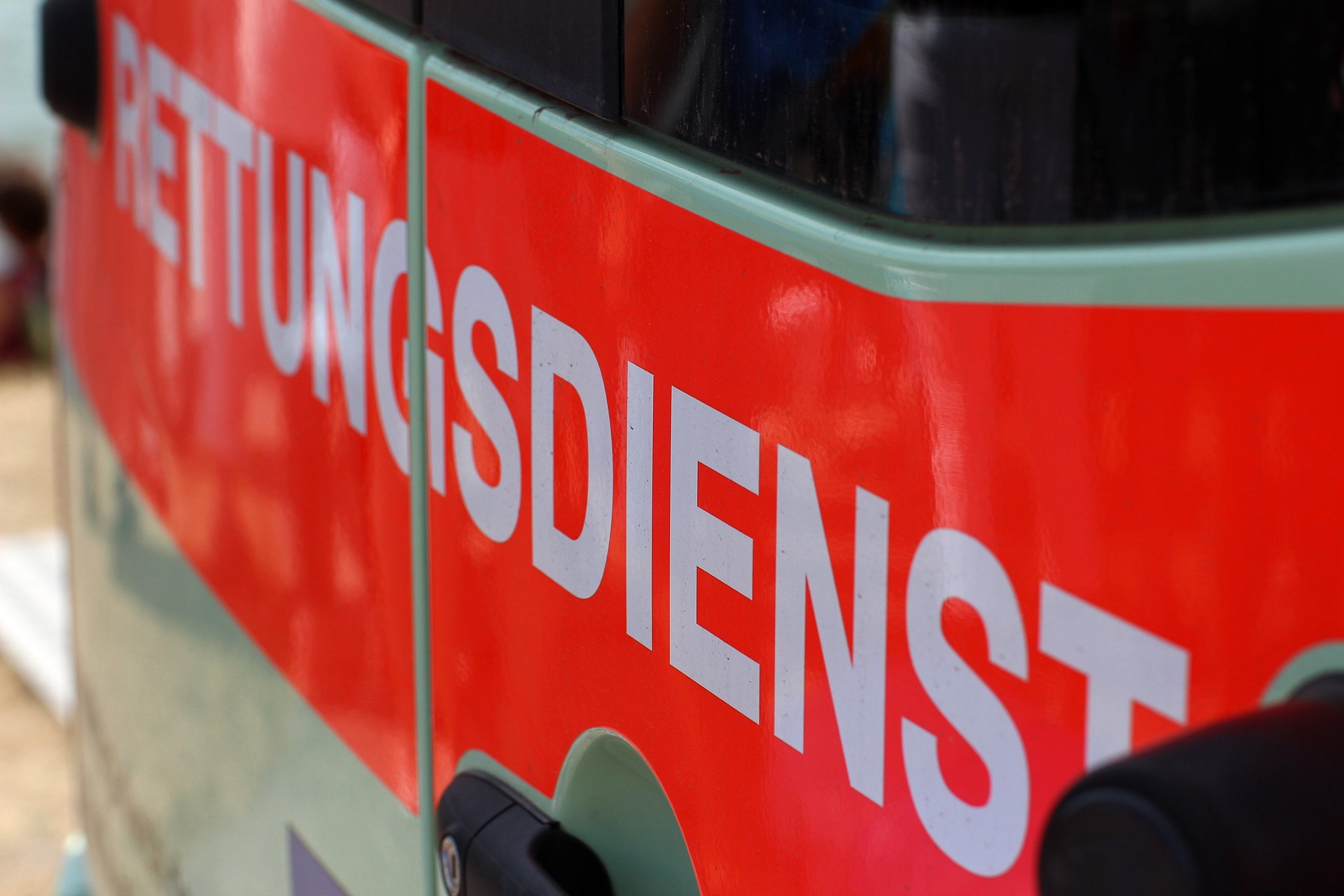The emergency response/rescue service exception has been a hot topic since 2016. In the landmark case before the ECJ (SKW Schwarz successfully supported this case), the Court of Justice clarified that this exception from public procurement law is legally compliant. Rescue services (including qualified ambulance transport) do not have to be tendered according to EU procurement law. It is still unclear in some federal states whether state law regulations prevent a provider from using the exception.
In its decision of 16.12.2022 (AZ: 13 B 839/22), the Higher Administrative Court for the Land of North Rhine-Westphalia ruled that the currently applicable version of Section 13 para.1 of the NRW Rescue Act does not prevent the applicability of the area exemption. The decision is final (cf. § 152 (1) VwGO, §§ 68 (1) sentence 5, 66 (3) sentence 3 GKG).
A district town had put rescue services out to tender using the area exception pursuant to § 107.1 no. 4 GWB. The existing service provider - a private rescue service - was excluded from further proceedings by the contracting authority for formal reasons. After the "private" party objected to the exclusion, it brought an action before the Gelsenkirchen Administrative Court.
In its decision of 13.07.2022 (AZ: 15 L 743/22), the VG Gelsenkirchen took the view (as had previously been the case with the awarding chamber in NRW) that the area exception did not apply in NRW. Thus, the award of services in the rescue service was subject to public procurement law (Sections 97 et seq. GWB).
The OVG NRW took a different view: The administrative appeal pursuant to § 40 para. 1 sentence 1 VwGO is open (background: in contrast to construction services, rescue services are part of public law). In this respect, the court does not see any displacing special allocation to the contract award review instances, since the tasks of the ground-based rescue service in the case fall under the area exception "rescue service" pursuant to Section 107 (1) no. 4 GWB.
According to the OVG NRW, the current state law regulation does not (in our opinion rightly) preclude the area exception. Contrary to the opinion of the Public Procurement Tribunal and the lower court, the OVG NRW does not require an explicit state law privileging of non-profit organisations or associations in the North Rhine-Westphalian Rescue Act for the application of the area exception in North Rhine-Westphalia. In the first instance (B. v. 13.07.2022 - 15 L 743/22), the VG Gelsenkirchen still came to the conclusion that it was essentially a matter of the formulation of the state law regulation. Only if the NRW Rescue Act privileges non-profit organisations (at least optionally, but expressly), the scope of application of the area exception is opened. If, on the other hand, there was parity, the contracting authority could not invoke the exception.
Section 13(1) of the NRW Rescue Act states in this context:
"The responsible body for rescue service tasks can transfer the implementation of the rescue service ...to recognised aid organisations and other service providers ...".
The OVG NRW makes a differentiating interpretation. The question of privileging non-profit organisations or associations could only be decided on a case-by-case basis in relation to the specific commissioning. The wording of Art. 10(h) of Directive 2014/24/EU allows for the application of the area exemption even with the existing regulation in NRW. The decisive factor was the interpretation of the term "to be provided". According to the meaning and purpose, the system and also the wording of Article 10(h) of the Directive, the concrete award procedure had to be taken into account.
In addition, the Land legislature had clarified in the explanatory memorandum to § 13.1 of the Rescue Services Act of North Rhine-Westphalia that relevant budgetary and procurement law, if applicable, remained unaffected by the provision. § Section 107 (1) no. 4 GWB is higher-ranking law and therefore takes precedence over the regulation. The OVG NRW clarifies that the decision as to whether a selection procedure for ground-based rescue services should be restricted to non-profit relief organisations is always at the discretion of the respective provider. Ultimately, it is the latter who decides in the context of each procurement process whether it wants to make use of the area exemption or not.
Legal opinion of the VK Westfalen
The OVG thus clearly departs - in our opinion rightly - from the most recent decision of the VK Westfalen (B. v. 15.06.2022 - VK 1-20/22) on the area exemption. The latter was of the opinion that the area exception could not be applied in NRW with the existing state law regulation.
In the view of the Public Procurement Tribunal, there is no possibility in state law to privilege aid organisations. Section 13 of the NRW Rescue Act provides for the opening of competition also for private service providers. In contrast to the OVG, the VK rejects the view that the possibility of privileging aid organisations arises directly from Section 107 (1) no. 4 GWB. § Section 107 (1) no. 4 GWB exclusively opens up the possibility of making use of the area exemption. The extent to which or whether this possibility may be used depends decisively on the formulation of Land law. § Paragraph 13(1) of the NRW Rescue Act specifies that, in addition to recognised aid organisations, other service providers are also eligible for the transfer of rescue service tasks.
An immediate appeal against the decision of the VK Westfalen is currently pending before the OLG Düsseldorf (AZ: VII Verg 28/22).
Previous decision practice in other federal states
The decision of the OVG NRW differs somewhat from the previous line of the review bodies and courts in other federal states. So far, the legal opinion has emerged in case law (e.g. Hamburg, Lower Saxony, Brandenburg) that the respective Land law must expressly provide for the privileged treatment of charitable organisations. Regulations that gave equal status to non-profit aid organisations and private service providers were critical. It is disputed in the interpretation whether a mention of both groups per se creates a mandatory equal status or whether (as in NRW, which is proven by the history of the legislation) this should only create conformity with federal law. Prior to 2016, the latter had enforced equal treatment and thus award procedures in accordance with EU procurement law.
Outlook
It is not yet foreseeable whether the OLG Düsseldorf will follow the legal opinion of the OVG NRW in the still pending decision. The oral hearing before the OLG Düsseldorf will take place on 01.03.2023. If the public procurement tribunal deviates from the legal opinion of the OVG NRW, the OLG would be obliged to "submit a divergence" to the BGH analogous to Section 179 (2) GWB. This is the only way to ensure a uniform ruling practice in public procurement law issues. In the event that the OLG agrees with the legal opinion of the OVG and declares itself to lack jurisdiction, it can refer the matter to the competent administrative court pursuant to Section 17a (2) GVG.
The legal situation remains exciting. Some federal states (e.g. Lower Saxony, Hamburg) have amended their rescue service laws to eliminate uncertainties. Currently, there are also discussions in NRW to change the state law. SKW Schwarz has advised on this.
The question of whether a purely formal non-profit status is sufficient for a company to be considered under the sectoral exemption remains unresolved. The origin, wording and meaning of the law/directive suggest that the exception for emergency services is intended to give preference to organisations that ensure "added value for the protection of the population" (René M. Kieselmann/Mathias Pajunk, "Bestätigung der Bereichsausnahme Rettungsdienst - Weiterer Baustein in der Entscheidungspraxis durch das OLG Hamburg", NZBau 2021, 174 (discussion of OLG Hamburg Beschl. v. 16.4.2020 - 1 Verg 2/20, NZBau 2021, 210)).
SKW Schwarz has also published various articles on the topic on the award blog.





